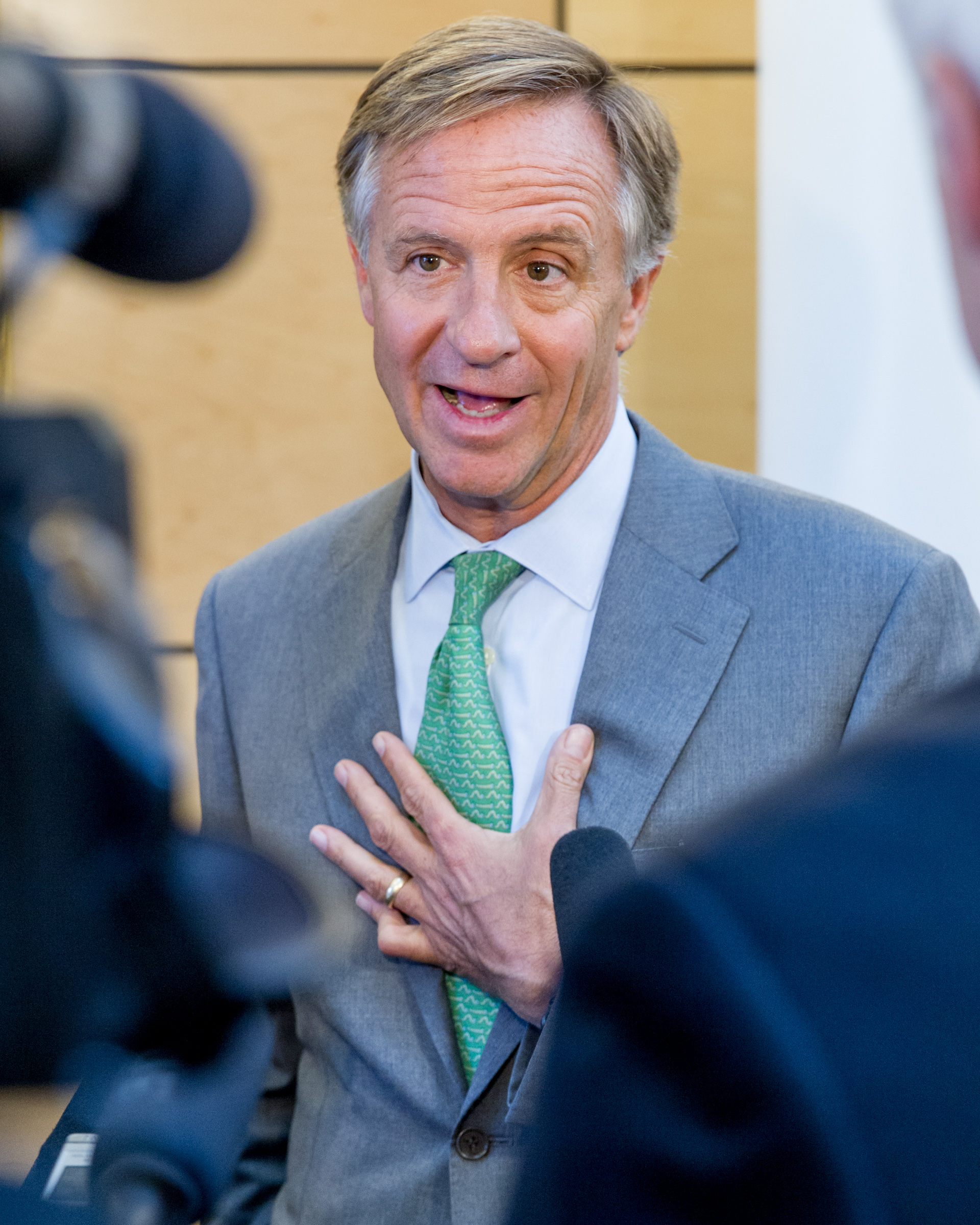NASHVILLE - Gov. Bill Haslam said Thursday he hopes to put a long-delayed Medicaid expansion proposal before federal officials soon that would extend subsidized health insurance to an estimated 180,000 low-income Tennessee adults.
"I think we'll probably go to them sometime this fall with a plan ... that we think makes sense for Tennessee," the Republican told reporters in response.
It's the first significant development in months over Tennessee's ongoing struggle to expand Medicaid under President Barack Obama's 2010 health care law.
Like many Republican governors, Haslam so far has declined to accept hundreds of millions of dollars in federal funds that became available on Jan. 1, 2014, absent a special waiver of federal rules that he says will save money and result in better health outcomes.
Eighteen months ago he outlined a "Tennessee Plan." It would allow the state to use the federal money to buy private insurance through the federal law's health coverage.
But Haslam has yet to submit a formal request. Instead, state officials and sometimes the governor himself quietly sounded out their federal counterparts on what might be acceptable.
The governor sought to swat the ball over to U.S. Health and Human Services Secretary Sylvia Burwell, asking her to come up with her own plan that would work in Tennessee. She hasn't responded, the governor acknowledged.
Haslam's statements on Thursday came in response to reporters' questions following a Legislative Plaza rally by the state NAACP and other advocates.
The 40 to 50 participants castigated the governor and Republican Lt. Gov. Ron Ramsey, the state Senate speaker, for refusing to expand the program.
"Governor, do the right thing, do the moral thing," urged Walter Davis, executive director of the Tennessee Health Care Campaign, who joined Tennessee NAACP President Gloria Sweet-Love and other advocates in a rally on the Legislative Plaza.
Lower-income people are suffering as are hospitals, which had anticipated the money, advocates said.
Asked by reporters about the comments, Haslam revealed he spoke earlier this week with Burwell and was already working to schedule a meeting with her.
Haslam said what's changed is his administration can now follow the experience of other states where governors, many of them Republicans, have obtained approval for waivers of traditional Medicaid rules.
"One of the things we're able to do now is look and say well they said yes to this with this state, no to that ... so we're kind of learning through that whole process as well," Haslam said.
He noted any plan will have to pass muster with the Republican-dominated Legislature where many lawmakers have said they will oppose expansion. And he repeated earlier statements that he has to have a plan that will win fellow Republicans' approval.
A number of governors, many of them Republicans, have blazed a trail the governor now hopes to follow. The pressure on Republicans came with the U.S. Supreme Court's 2012 decision which upheld the federal Affordable Care Act. But the court struck down a mandatory requirement on Medicaid expansion, leaving it up to states to decide whether to expand Medicaid, a key feature of the plan. And that's put Republicans in interested states across the nation on a hot seat with the GOP's anti-Obama base.
On Thursday, Pennsylvania Gov. Tom Corbett became the latest GOP governor to win approval for a waiver of some federal rules from HHS's Centers for Medicare and Medicaid Services.
As a result, the Keystone State on Jan. 1, 2015, will join 26 other states and the District of Columbia in expanding Medicaid with the initial costs borne entirely by the federal government. As many as 600,000 adult residents with incomes of up to 138 percent of the federal poverty level would obtain subsidized coverage.
The federal money became available to states on Jan. 1, 2014. And the federal government is picking up the entire cost for the first three years, gradually decreasing that to 90 percent.
Pennsylvania public radio station WITF reported that under Pennsylvania's waiver, persons making more than 100 percent of the federal poverty level, $23,850 for a family of four, would have to pay 2 percent of their income toward a monthly premium, starting in 2016.
Payments could be reduced based on "job training," "work-related activities," or an annual wellness visit. And an $8 co-pay will be added to any emergency room visits for "nonemergency use," the station reported.
Haslam has talked as well about incentives like higher co-pays for emergency room visits for non-emergency use as well as incentivizing healthy behaviors.
Contact staff writer Andy Sher at asher@timesfreepress.com or 615-255-0550.

